
United Kingdom, Scotland, Whaligoe steps at Caithness stock photo
Whaligoe Haven is one of the most remarkable harbours to be found in Scotland - surrounded on three sides by 250 feet cliffs, and is reached by the Whaligoe Steps which zig-zag down the cliffside. The natural harbour at the foot of the steps has been a long standing landing point for herring, salmon, whitefish and shellfish. First prospected.
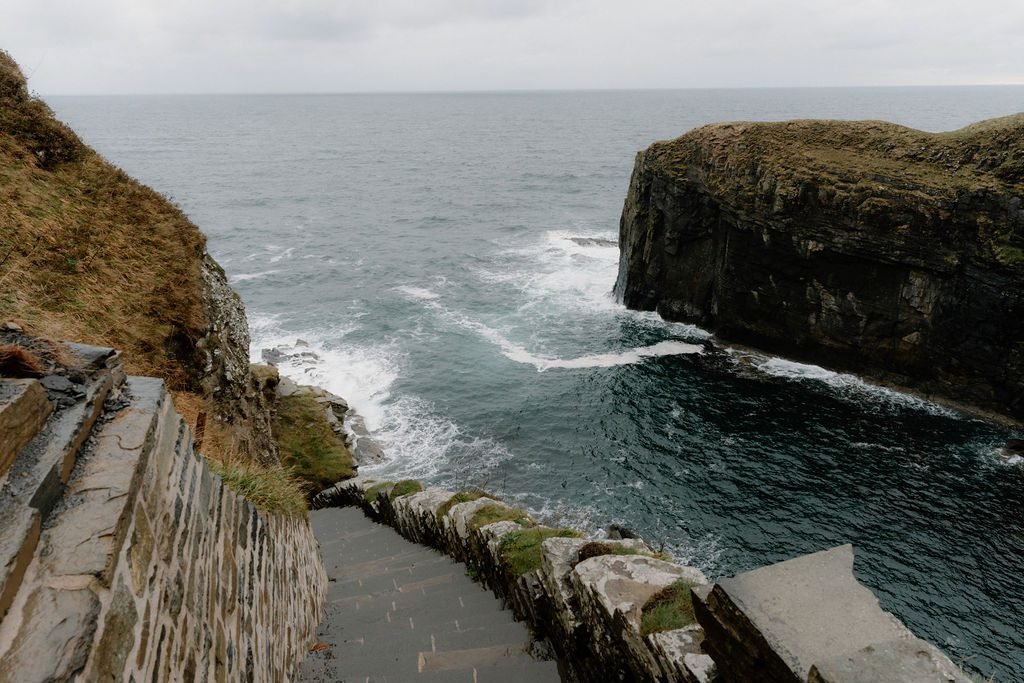
Whaligoe Steps Hidden Scotland
Scotland. Scottish Highlands. Caithness and Sutherland. Whaligoe. Things to Do in Whaligoe. Whaligoe Steps. See all things to do. Whaligoe Steps.. Whaligoe steps are very much worth a visit on the NC500. Stunning views from the top and all the way down the 300 odd steps.

Whaligoe Steps John O'Groat Journal YourCaithness Scotland travel, Scotland, Scotland
Whaligoe Steps. Moderate • 4.3 (17) Lybster, Highlands, Scotland. Photos (22) Directions. Print/PDF map. Length 0.5 kmElevation gain 33 mRoute type Out-and-back. Discover this 0.5-km out-and-back trail near Lybster, Highlands. Generally considered a moderately challenging route, it takes an average of 12 min to complete.

Easy Directions to Whaligoe Steps American Expeditioners
Whaligoe Haven, 330 of them cut into the cliffisde lead to remote harbour. They are steep and windy in parts with no handrails etc., so descend slowly (your ascent will anyway be slow as you catch your breath!). Parking available at the top, but limited spaces which fill up quickly. Written 30 May 2023.

Whaligoe Steps Scotland David Grau Flickr
The Whaligoe Steps are made of flagstone and descend the cliff face in a series of zigzags. Local sources, including the account of those who look after the steps, all say that there are a total of 365 steps. The Royal Commission on the Ancient and Historical Monuments of Scotland, which we'd normally take as authoritative, says there are 330.
Whaligoe Steps and the Cairn of Get (Walkhighlands)
Whaligoe Steps Car Park Location: 58°20'46.2"N 3°09'46.5"W Whilst this NC500 attraction (and its parking) is free, it is also being constantly maintained by dedicated, local volunteers. For this reason, please don't be shy in dropping any donation in their box at the beginning of the walk to the steps.

Whaligoe Steps North Coast 500
The cliff crossing to Whaligoe Waterfall viewpoint Whaligoe Steps history. Dating back to the 1700's, the zig-zagging flagstones lead to one of Scotland's most beautiful natural harbours; a long-standing fishing point for salmon and herring (amongst other fish).

whaligoe steps, Caithness, Scotland Stock Photo Alamy
How To Get To Whaligoe Steps. Located just off the A99 coast road between the village of Lybster and the town of Wick on the east coast of Scotland, Whaligoe Steps can be tricky to find.Car. Whaligoe steps are not signposted on the main road so following Google Maps is key.

Whaligoe Steps Scotland travel, England and scotland, Scotland
Whaligoe Steps. The Whaligoe Steps are 365 steps that descend to what was a naturally formed harbour between two sea cliffs, built by Captain David Brodie who also built the harbour and village of Sarclet some 3 miles north of the steps which was once a landing place for fishing boats.

Whaligoe Steps, Highlands of Scotland Stock Image Image of nature, history 133784905
Whaligoe Steps. Discover this 0.3-mile out-and-back trail near Lybster, Highlands. Generally considered a moderately challenging route, it takes an average of 12 min to complete. This trail is great for birding and walking, and it's unlikely you'll encounter many other people while exploring.
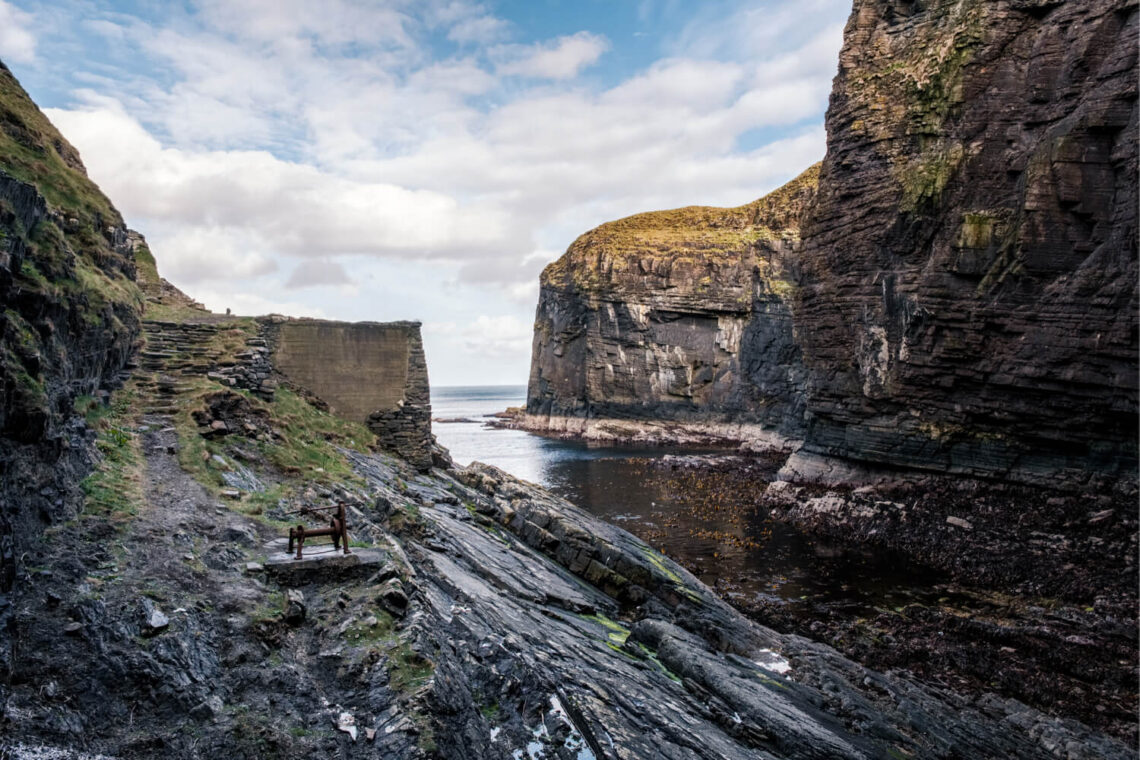
Complete Guide to the Whaligoe Steps WHAT, WHERE and WHY.. highlands2hammocks
Dedicated volunteers kept the Whaligoe Steps maintained and usable, although it wasn't always an easy job. After a devastating landslide in the winter of 1975, the steps were buried under several tons of rubble, making the descent impossible. The volunteers estimated that clearing the way would take at least 4 men several days of hard labour.

Whaligoe Steps, Scotland © Andrew Tryon Geograph Britain and Ireland
Lybster, Caithness. Whaligoe Steps is a unique location in the north east of Scotland which consists of around 365 steps descending into an incredible sea cliff surrounding. You may find that different sources report a varying amount of steps, which range anywhere between 330 to 365; I tried to count during my visit, however, the view was quite.
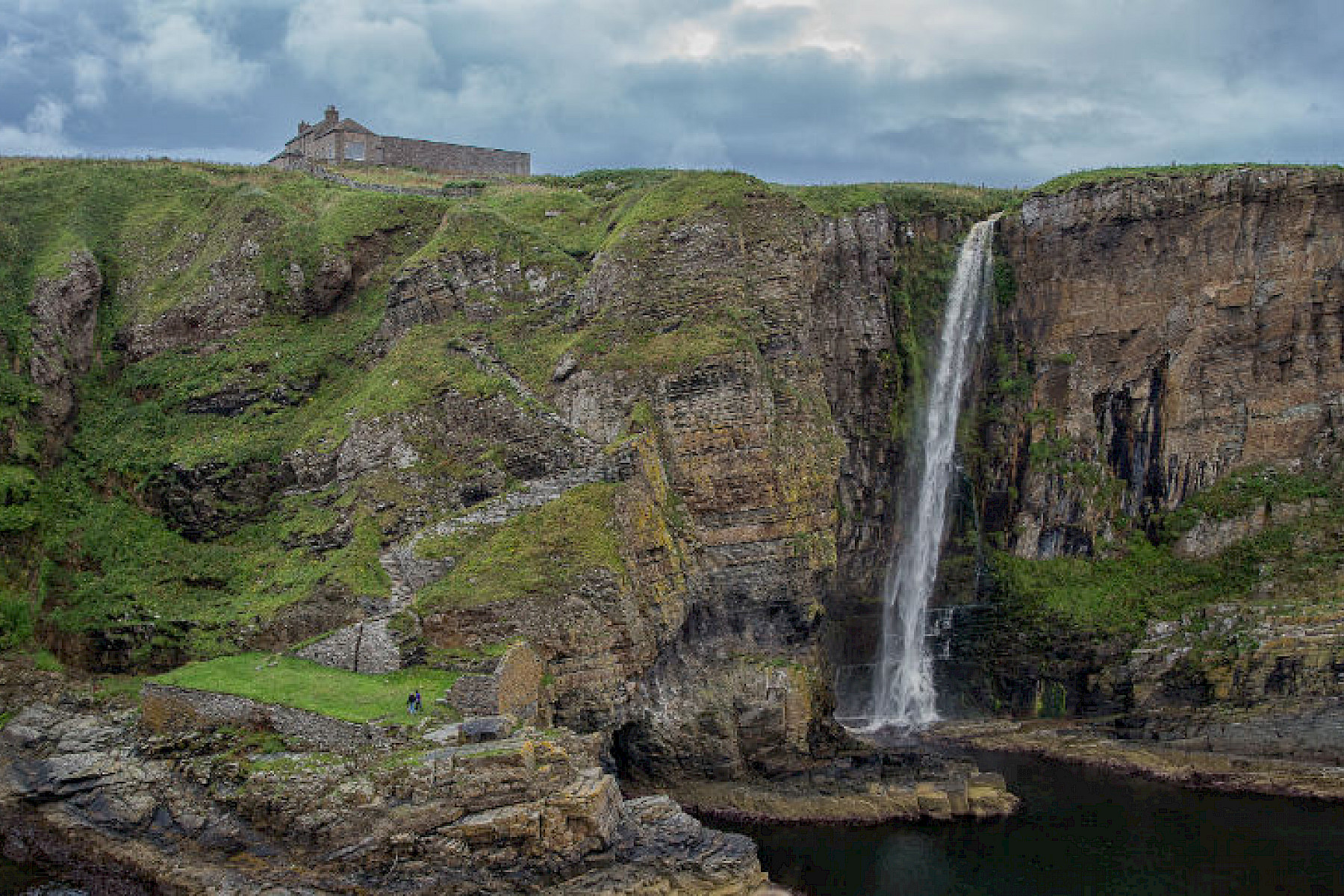
The Whaligoe Steps, Caithness & Sutherland Venture North
Stage 1. Take the narrow minor road which heads inland from Whaligoe; it is signed for the Cairn of Get; there is a marked space to park at the south end of Loch Watenan. Begin the walk by heading back along this minor road; when it turns sharp left by a house (once a railway cottage on the Wick - Lybster line), turn right through a metal.

United Kingdom, Scotland, Whaligoe steps to the bay stock photo
The Whaligoe Steps is a human-made stone staircase leading to the natural harbour of Whaligoe Haven in Caithness, Scotland. The Whaligoe Steps walk descends some 365 steps, where views of this incredible geo, sheer cliff face and the rugged North Sea are quite incredible.. In this guide, we'll tell you a little about the history of Whaligoe Steps, as well as where in Caithness, Scotland to.
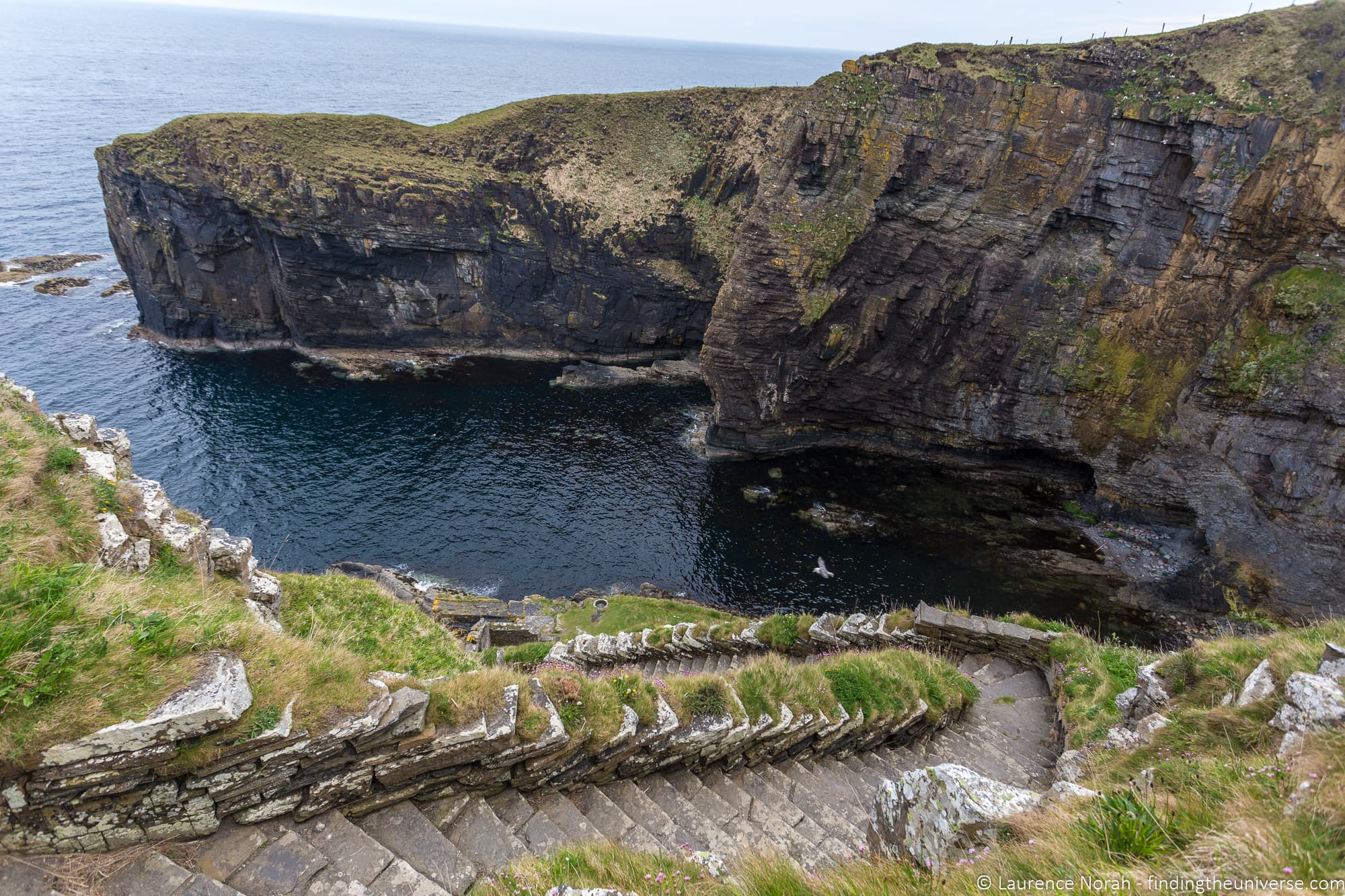
The Perfect 5 Day North Coast 500 Itinerary The Ultimate Scottish Road Trip! Finding the Universe
History of the Whaligoe Steps. The ancient stones of the Whaligoe Steps have wound their way down the cliffside of Scotland's northern region for over 200 years. In 1786, the Scottish engineer Thomas Telford prospected the small harbour of Whaligoe as he toured the northern coastlines for the Northern Fishing Society.
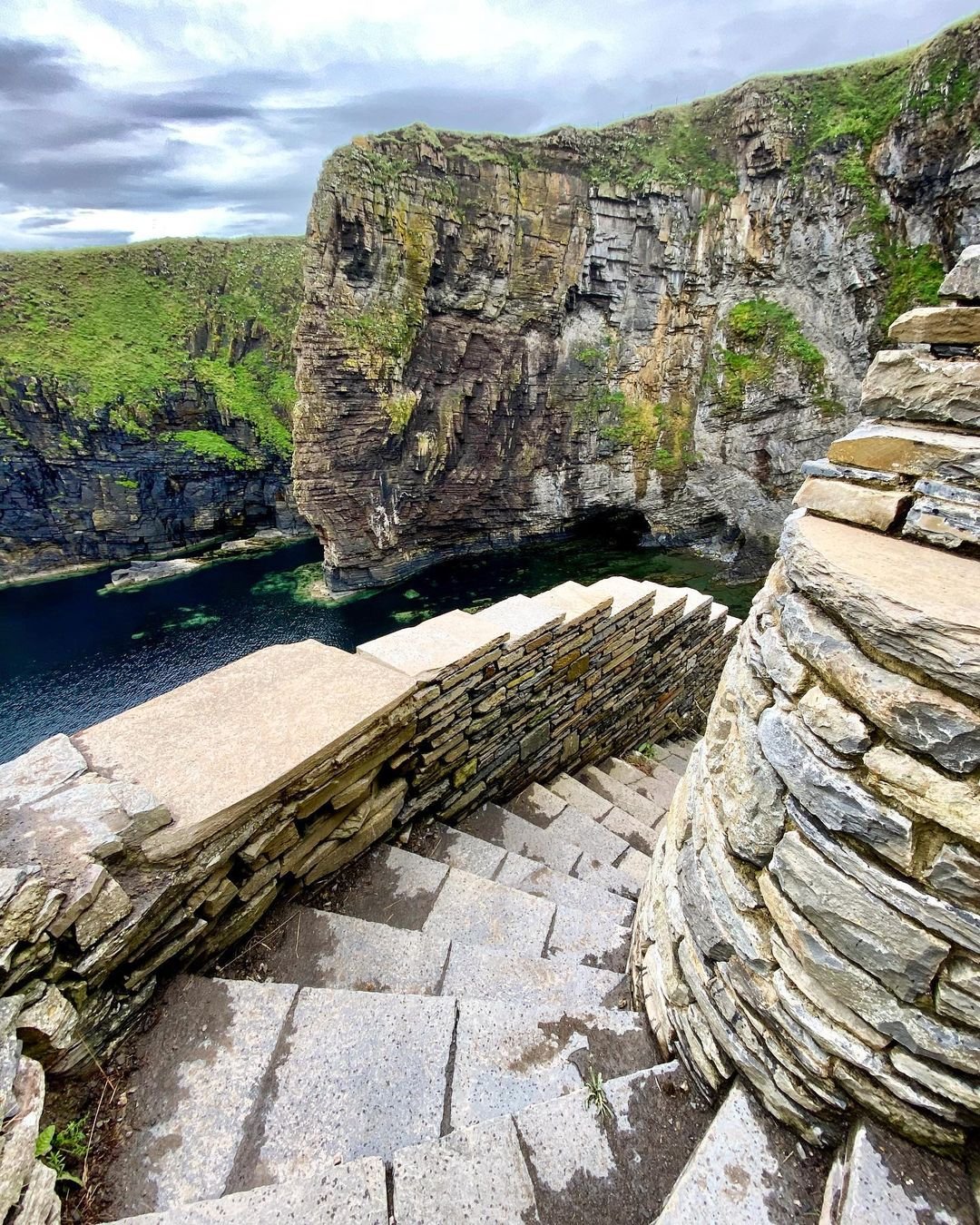
The Hidden History of The Whaligoe Steps Hidden Scotland
The Whaligoe Steps is a man-made stairway of 365 steps that descend to what was a naturally formed harbour between two sea cliffs - once a landing place for fishing boats. The steps are located just south of the town of Wick in Caithness on Scotland 's most northeasterly coast. They date originally from the mid-18th century and were once used.